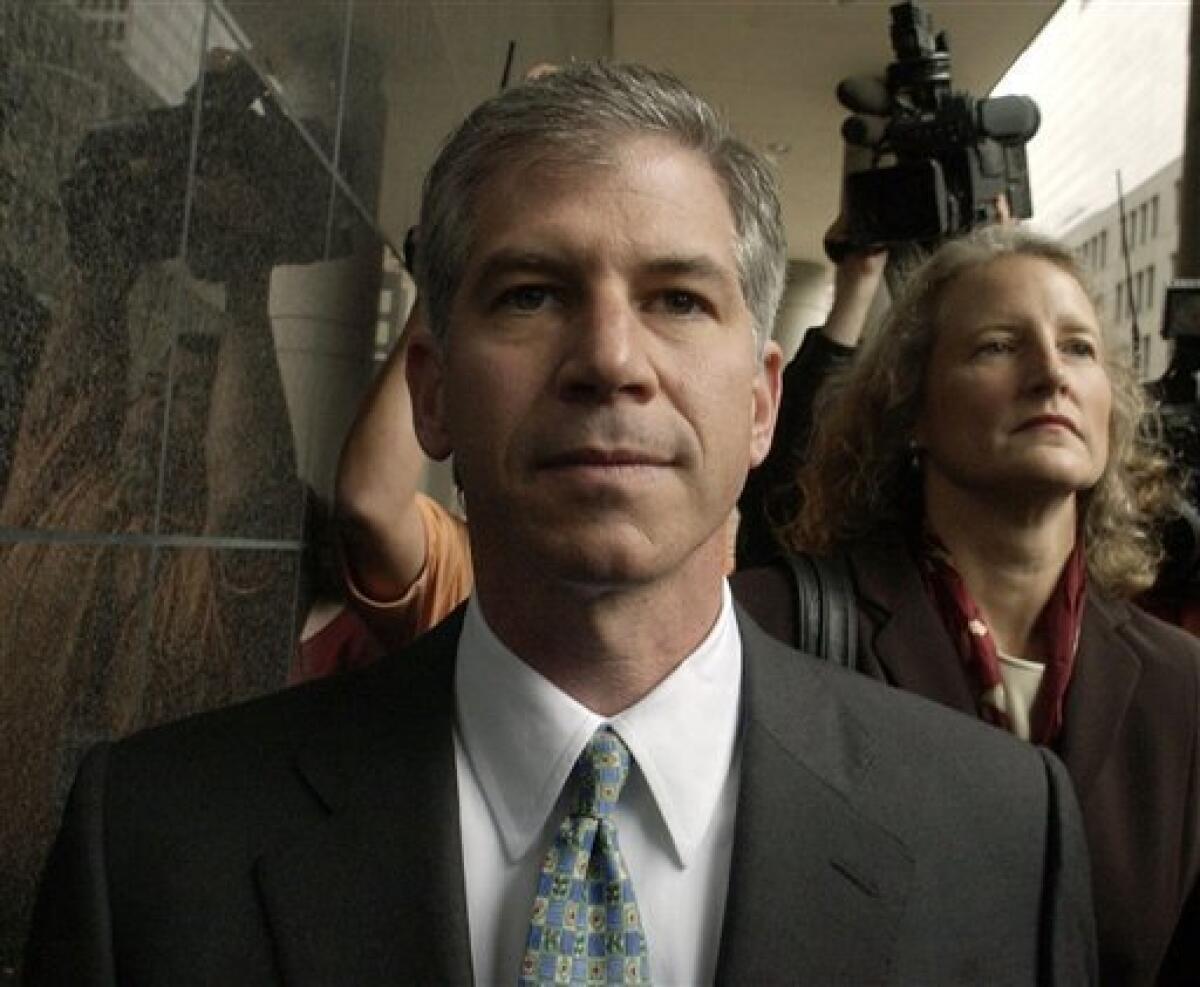Ex-Enron finance chief Fastow out of prison

Andrew Fastow, the mastermind behind financial schemes that doomed Enron Corp., returned to Houston this week to serve the remainder of his six-year sentence at a halfway house, a federal prison official said Wednesday.
Fastow, 49, joined another former Enron executive who is also serving part of his sentence at the halfway house. A third ex-Enron executive who had also been at the halfway house left a day after Fastow arrived, said Chris Burke, a spokesman for the U.S. Bureau of Prisons.
On Monday, Fastow left a federal prison in Pollock, La., where he had served most of his prison sentence, and later that day he reported to the halfway house.
Burke said he could not name the halfway house but added there is only one such facility in Houston, located only a few blocks away from Minute Maid Park, the downtown ballpark of the Houston Astros that was originally named Enron Field.
Attorneys for Fastow did not immediately return telephone calls seeking comment.
Fastow’s wife, Lea Weingarten, and the couple’s two sons still live in Houston. Weingarten, who served a year in prison for helping her husband hide ill-gotten income from his Enron schemes, now works as an art adviser and curator. She did not immediately return a telephone call or email seeking comment.
Enron, once the nation’s seventh-largest company, crumbled into bankruptcy in December 2001 after years of accounting tricks could no longer hide billions in debt or make failing ventures appear profitable. The collapse wiped out thousands of jobs, more than $60 billion in market value and more than $2 billion in pension plans.
Fastow, the former chief financial officer for Enron, was sentenced in 2006 after admitting to running various schemes to hide Enron debt and inflate profits while enriching himself. He pleaded guilty to two counts of conspiracy as part of a plea agreement with prosecutors.
Fastow had agreed to a 10-year prison term, but a federal judge said he deserved a lighter sentence. Fastow also surrendered nearly $30 million in cash and property.
At the trial of his bosses, Enron founder Kenneth Lay and former CEO Jeffrey Skilling, Fastow testified the two men were aware of fraudulent financial structures engineered by Fastow and his staff. Skilling and Lay were convicted in 2006 of conspiracy and fraud.
Lay died in July 2006 before entering prison. Skilling awaits resentencing after an appeals court overturned his 24-year sentence and the U.S. Supreme Court declined to overturn his convictions.
At the halfway house, Fastow is joining former Enron executive Rex Shelby, who in March was sentenced to two years of probation on a charge of insider trading.
Shelby was one of seven former executives first indicted in 2003, all accused of scheming to exaggerate the capabilities of Enron’s broadband network in order to inflate company stock.
As part of his sentence, Shelby will have to serve three months in a halfway house, a temporary group home designed to facilitate the reentry into society of prison inmates, and three months in home confinement.
Edwin Tomko, one of Shelby’s attorneys, said Shelby has been in the halfway house about a week.
“He wasn’t aware of (Fastow coming). I haven’t talked to him about Andy being there,” he said. “They were not in any way connected in their daily duties. I don’t even know if (Shelby) ever met him.”
A third ex-Enron executive, Richard Causey, left the hallway house on Tuesday after being there since April 20. Causey is serving the rest of his 5 1/2-year sentence in home confinement, Burke said.
Causey, Enron’s former chief accounting officer, pleaded guilty to securities fraud in 2005 shortly before he was scheduled to be tried with Lay and Skilling.
Fastow’s release date is set for Dec. 17. He likely won’t serve his entire six-year sentence because, like all federal inmates, he is eligible for time off for good behavior. Under law, federal inmates can receive up to 47 days off for each year of a prison term, Burke said.
Fastow will also be evaluated at some point for whether he can serve part of his remaining sentence in home confinement, Burke said.